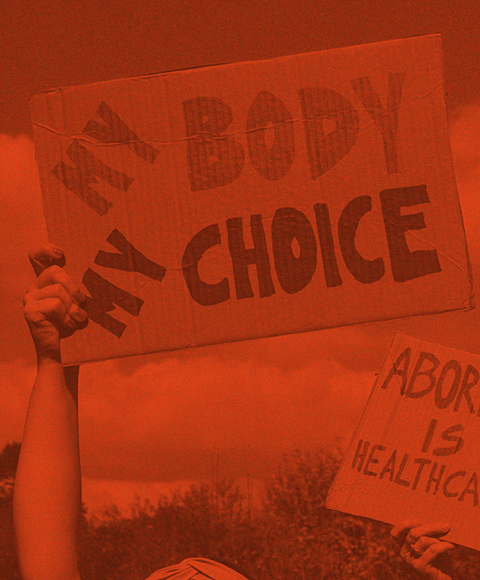Bodily Autonomy
Bodily autonomy is one of the most fundamental rights we have as human beings. However, across the country, this fundamental right is being challenged. This week, we will have difficult conversations about some of the many ways marginalized bodies are restricted, policed, and violated.
Laws have been proposed and passed that limit the rights of trans, gender nonconforming, and non-binary individuals, impacting their access to essential medical care and their ability to exist in public spaces. The fight for reproductive choice is also an ongoing struggle that has taken critical decisions out of the hands of individuals. Weight stigma, which disproportionately impacts women of color, is yet another way we police bodies that has a profoundly negative impact on people’s physical and mental health. People of color also face discrimination based on their hair texture and style. Each day this week, we will dive into a different aspect of the critical conversation of bodily autonomy.
Week One Themes
- Medical Abuse/Informed Consent – When you go to the doctor or have a medical emergency, you hope that those providing care have your best interests at heart, take your pain seriously, and respect the decisions you make. The articles shared will discuss how, throughout history, systemic racism and sexism have empowered those in the medical profession to disregard the bodily autonomy of marginalized people.
- Race and Anti-Fatness – Weight stigma is another way our bodies are policed, and the impacts fall hardest on women, and women of color in particular. We will explore how systemic racism informed our ideas about aesthetics and health as well as the impact that anti-fatness has had on generations of Americans.
- Abortion Access – Legislation is being passed that prevents or limits people from making their own reproductive decisions. We know that maintaining reproductive choice empowers individuals to invest in their futures through education, career choices, etc. During Week 1, we will explore how these bans negatively impact marginalized communities and lead to racial inequities.
- Hair – Among various cultures and individual identities, a powerful freedom is found when one is able to express oneself through hair. By acknowledging and challenging societal norms and bias, we aim to create an environment that appreciates and respects personal expression through hair without judgment.
- Trans Healthcare – For many transgender and non-binary people, access to gender-affirming care is crucial to realizing their authentic selves physically and mentally. Despite this, it has become increasingly restricted and is too often misunderstood. Supporting bodily autonomy in this space promotes inclusivity and empathy and fosters a society that respects and values the diversity of gender experiences.


